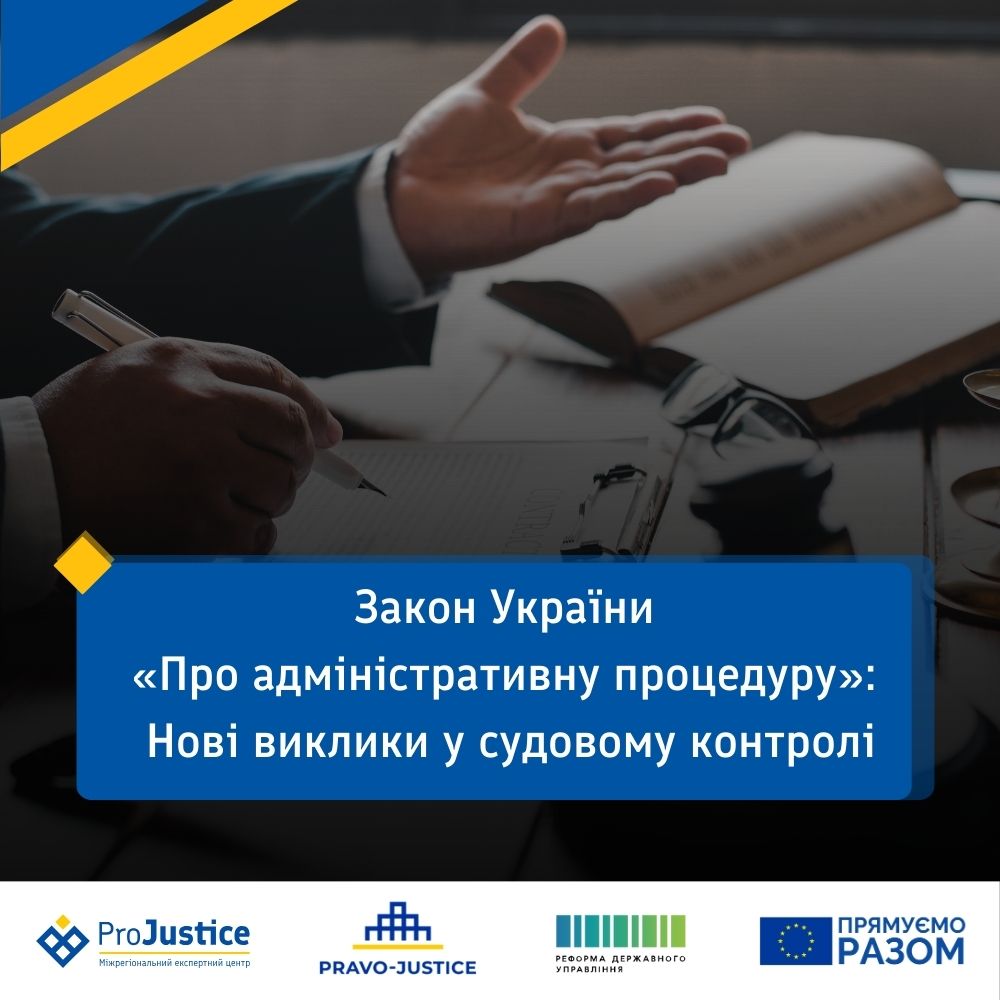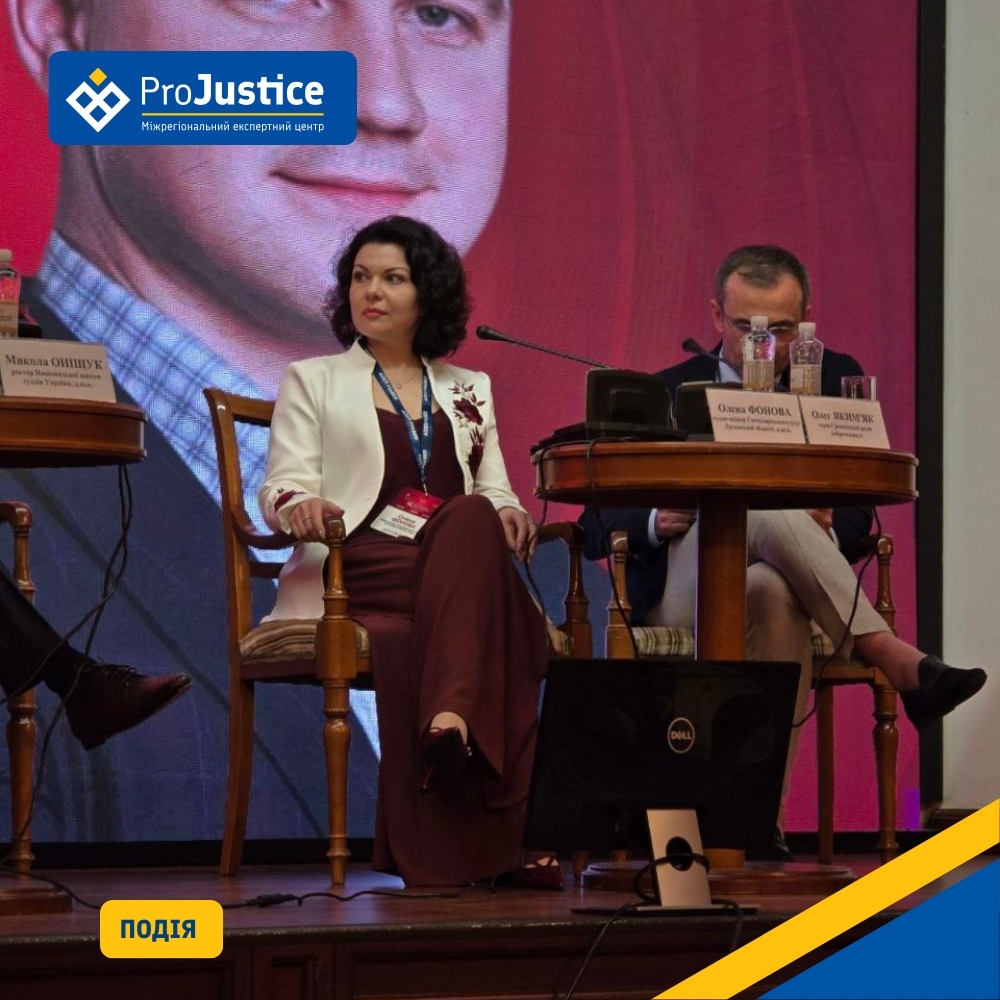ON MAY 24, THE EXPERT DISCUSSION “IMPROVEMENT OF WRIT AND SIMPLIFIED COURT PROCEEDINGS UNDER THE CCP AND THE CCU: IS IT POSSIBLE TO SIMPLIFY THE ALREADY SIMPLIFIED?”. NATIONAL AND INTERNATIONAL EXPERTS OF THE EU PROJECT “LAW-JUSTICE”, JUDGES, REPRESENTATIVES OF THE EBRD, THE MINISTRY OF JUSTICE, THE SUPREME COUNCIL, REGIONAL JUSTICE REFORM COUNCILS (RJC) AND OTHER PARTICIPANTS DISCUSSED HOW TO IMPROVE THE EFFICIENCY OF UKRAINIAN CIVIL AND COMMERCIAL JUSTICE.
“One of our main goals is to help make justice more efficient. Based on European practice, we have high hopes for the full implementation of the institute of court orders, as well as a reasonable limitation of the scope of work of the appellate courts. In addition, it is important to give judges more leverage to manage the process and transfer certain powers to court staff,” emphasized Dovydas Vitkauskas, EU Pravo-Justice Project Manager. According to Andriy Kostin, Member of Parliament, Chairman of the Verkhovna Rada Committee on Legal Policy, about 4 million court cases are heard in Ukraine every year, so simplifying the consideration of simple cases is extremely important. “As a specialized committee, we are always open to new ideas that can improve and refine the issues of the judicial process,” emphasized Andriy Kostin. Oleksandr Banchuk, Deputy Minister of Justice of Ukraine, expressed hope that the improvement of writ and simplified court proceedings will help reduce the duration of court proceedings: “The more typical small cases are considered in simplified and writ proceedings, the more time and resources judges will have to consider complex cases.”
Bert Maan, international expert of the EU Law-Justice Project emphasized the importance of fulfilling small monetary obligations: “We buy a lot of things online, we are mobile phone subscribers, we pay for health and other types of insurance, rent, etc. Such claims are relatively small, but together they amount to quite significant sums. There is no doubt that these funds must be paid, otherwise companies will not be able to continue to exist. Therefore, for the sake of the country’s economic well-being, there should be mechanisms that would allow these procedures to be implemented quickly and efficiently.” In turn, Semyon Kravtsov, national expert of the EU Project “Pravo-Justice”, presented draft report on the peculiarities of consideration of “minor cases” in civil and commercial proceedings in the courts of first instance and appellate courts in Ukraineprepared under the guidance of Bert Maan. Among other things, the expert emphasized the importance of more active use of court orders: “Creditors should start with a court order. In case of its appeal, there should be two additional options depending on the amount of the dispute: a simplified procedure that immediately transforms into a dispute and a general procedure.” The importance of writ proceedings for business was confirmed by Anna Savchenko, Senior Legal Advisor at Kyivstar’s Legal Department: “The writ proceedings provide us with more opportunities and really simplify the procedures for going to court and the timeframe, which are of great importance when collecting debts.” Olena Kibenko, a judge of the Grand Chamber of the Supreme Court, drew attention to the need for digitalization of legal proceedings: “It is very important that we have online courts without court hearings. […] Especially for commercial jurisdiction, where relations are mostly documented. That is, there is no need to hold a court hearing in the current format, especially given the possibilities of digitalization and restrictions due to the pandemic.” The topic of e-courts is actively developing in Ukraine. At the event, EBRD Senior Advisor Veronica Bradeutsanu presented the concept of a pilot project to assist Ukraine in establishing online courts for small claims. Regarding appeals in small cases, Roman Chumak, lawyer, coordinator of the Kharkiv RRRP, noted: “It is necessary to make appeals to the court of appeal more expensive. Then the debtor will not use the appeal mechanism to flirt with the system and not pay debts.” In conclusion , Oksana Tsymbrivska, Chief National Expert of the EU Project “Pravo-Justice”, emphasized that the Project will continue expert discussions on this topic. The presented draft report will be finalized and finalized by the Project experts following consultations with representatives of the Regional Justice Reform Councils and the legal community. For reference:The Regional Justice Reform Councils (RJCs) were established with the support of the EU Pravo-Justice Project and operate in Chernivtsi, Dnipro, Kharkiv, Lviv, Odesa regions and Donbas. To date, members of the Councils have been actively involved in the preparation of a draft law on mediation, amendments to the Bankruptcy Code, proposals to improve legislation on enforcement proceedings, the introduction of an electronic court, and discussions on the concept of transitional justice. The RECs act as permanent working groups that promote the implementation of reforms in accordance with the bottom-up principle: by bringing region-specific challenges and their potential solutions to the level of central authorities.



